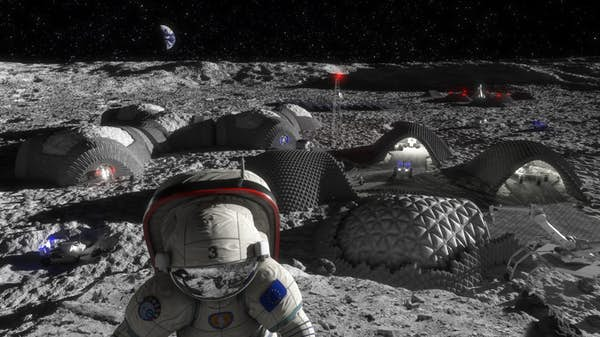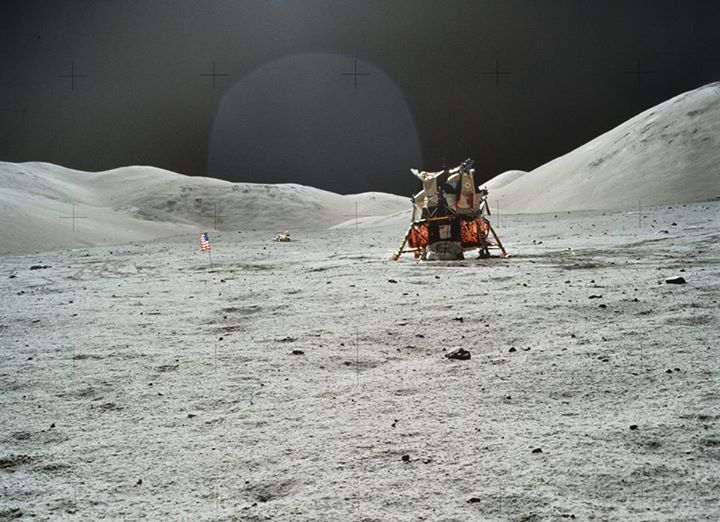The race is on to create new ways to protect data and communications from the threat posed by super-powerful quantum computers.



Space engineers have long considered lunar soil as locally available material for building outposts on the Moon, and now ESA researchers are considering it as a means to store energy. The Discovery & Preparation study by the agency and Azimut Space aims to determine how the lunar regolith can soak up solar energy during the day, then use it to generate electricity during the 14-day night and protect equipment against freezing.
An introduction to by Johannon Ben Zion candidate for President of the US Transhumanist Party.
US Transhumanist Party candidate for President, Johannon Ben Zion has a futurist new deal for America. This concept stoked my interest when I was listening to the debate between all of the US Transhumanist Party candidates. I wanted more information on this concept and Johannon Ben Zion was kind enough to forward this information to me.
What I am going to do is quote some content from his plan below. It will be short and condensed, to read more into the exact details of the plan you can download the PDF file at the end of the article. I am also going to list an interview that was done between Johannon Ben Zion and Debt Nation and the US Transhumanist Party Presidential Debate.
The primary Futurist New Deal mandate for blockchain technology is evoting. By casting votes as transactions, we can create a blockchain which keeps track of the tally of the votes. This way, everyone can agree on the final count because they can count the votes themselves, and because of the blockchain audit trail, they can verify that no votes were changed or removed, and no illegitimate votes were added.
50 years after the first Moon landing, humanity is getting ready to go back. Countries and companies are planning dozens of lunar missions—for research, for resources and even for tourism, which begs the question: who, if anyone, owns the Moon?
Click here to subscribe to The Economist on YouTube: https://econ.st/2xvTKdy
Who owns this? Is it America — the country that planted a flag on it?
Or this man — who has been selling plots of it for almost 40 years?
Or is it us — and anyone else who bought one and has the certificate to prove it?
Today many believe the Moon could be the next frontier for tourism, space exploration or even the mining of precious natural resources. Which means this question might be about to become a lot more important.
In 1969 an estimated 650m people watched as Neil Armstrong took his first step on the surface of the Moon. Five more landings followed. And then for almost 50 years no humans went back. That is about to change.
There are dozens of lunar missions planned over the next 20 years and some will carry crews. The first to land could be in 2024 when NASA hopes to send a crew to the lunar south pole — where it’s believed water may be frozen in craters. That crew may well include the first woman to land on the Moon.

How dictators work in the 21st century.
The new president of Kazakhstan is now proving that he will keep the old, oppressive systems alive for the 21st century, using advanced technical tools.
The man in the middle: Beginning last week, Kazakhstan’s government is intercepting all HTTPS traffic inside the country, ZDNet reports. HTTPS is a protocol meant to offer encryption, security, and privacy to users, but now the nation’s internet service providers are forcing all users to install certificates that enable pervasive interception and surveillance.
On Wednesday, Kazakh internet users were redirected to web pages instructing them to install the government’s root certificate in their web browser, which enables what’s called “man in the middle” interception of internet traffic, decryption, and surveillance.
Infusions of artificial intelligence (AI) are making robots smart, social, and capable of interacting with people of all ages in a variety of settings.
African farmers earned 41% more when using this method.
🔎 Learn more about innovative methods of growing rice: https://wef.ch/2GjlJjW


Our current approach to treating chronic pain is drug-based, but a vaccine-based approach can cut addiction out of the equation. In this video, Big Think contributor Lou Reese, co-founder of United Neuroscience, explains how soon we may soon be able to vaccinate people, en masse, against pain!